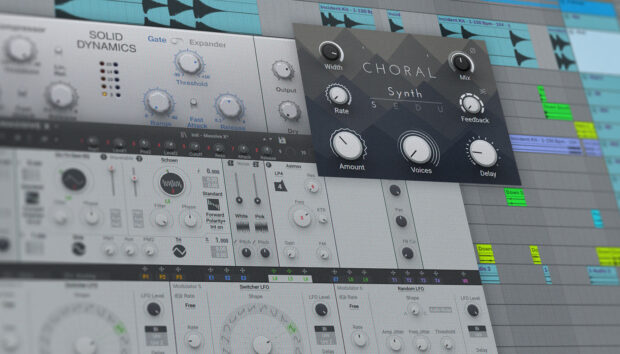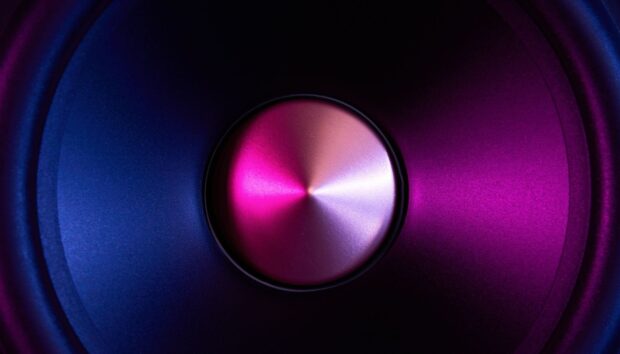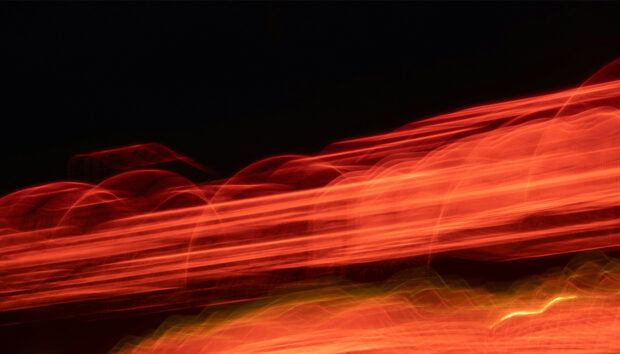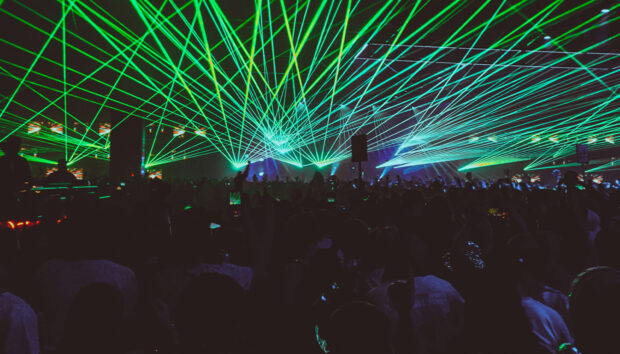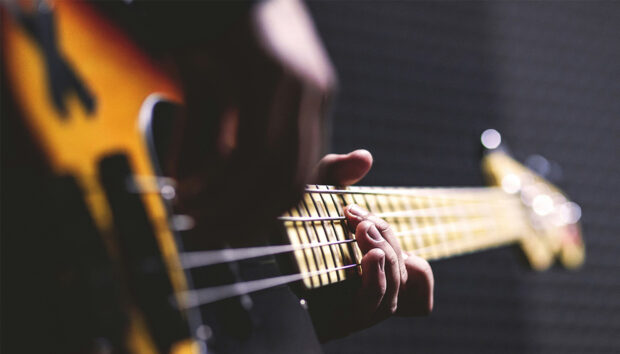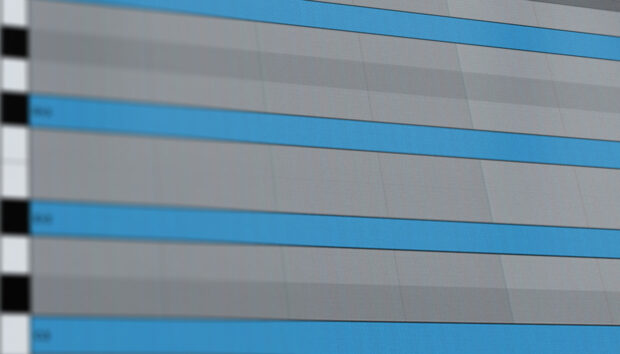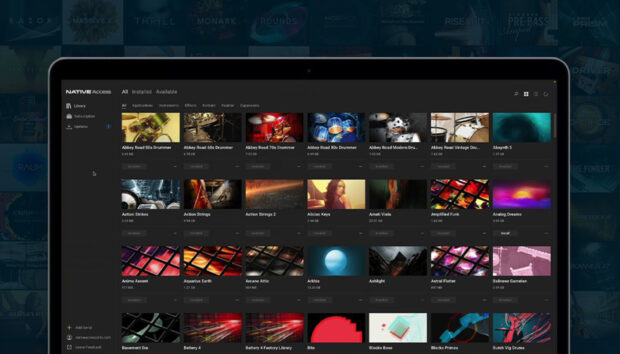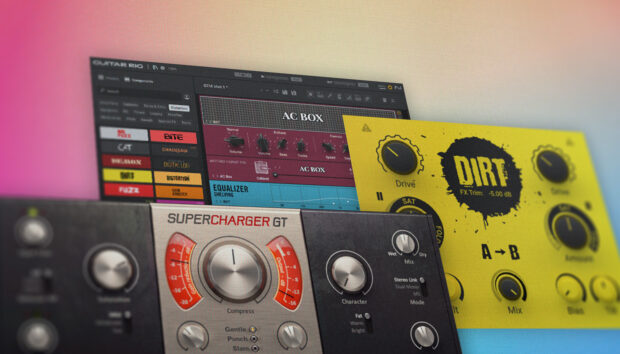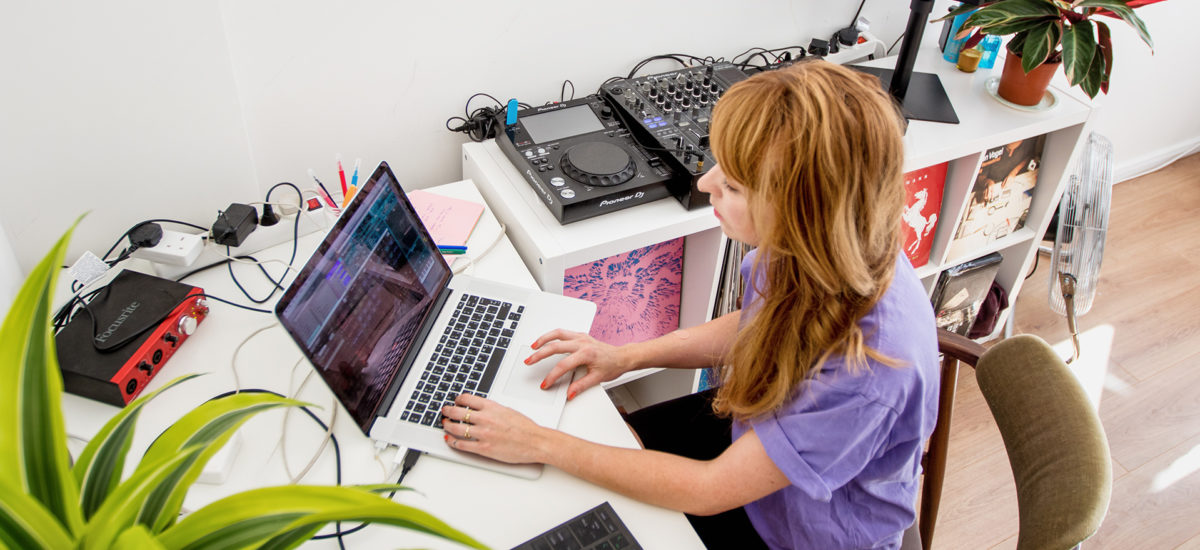
ELLLL is an Irish producer and DJ, and founder of Gash Collective – a platform that focuses on supporting female identifying and LGBTQ producers and DJs in the field of electronic music. Previously, she’s released music via Art For Blind, and has two brand new vinyl releases that should see the light of day before 2018 is out.
Originally from Cork, ELLLL recently relocated to Berlin and makes charmingly unique, sample heavy electronic music that features plenty of hefty kick drums. Native Instruments caught up with her to chat about her approach to sampling, using BATTERY and the benefits of DJing with TRAKTOR.
How did you first get into producing?
I grew up playing piano and studied music at university, and didn’t really know what path I wanted to go down. In my second or third year, I took all the technology classes available to me and really enjoyed it. It clicked with me. I started producing in my own time at home, and I went from there.
What studio setup are you using at the moment?
I just moved from Ireland to Germany, so had to bring the things I couldn’t live without. At the moment I have monitors, my laptop, Ableton Push, decks and a mixer. I don’t use much hardware normally; I left it all in Ireland. I still have to go back and get the rest but I’m very comfortable using just a laptop – I’m happy to do it that way.
So you’re mainly using software to produce?
Yeah, I’m really happy using software. I’ve got a few bits of hardware, but always end up going back to the software. Ableton is the main DAW I use. You hear people say, “I get sick of looking at computer screens!” but I’m the opposite.
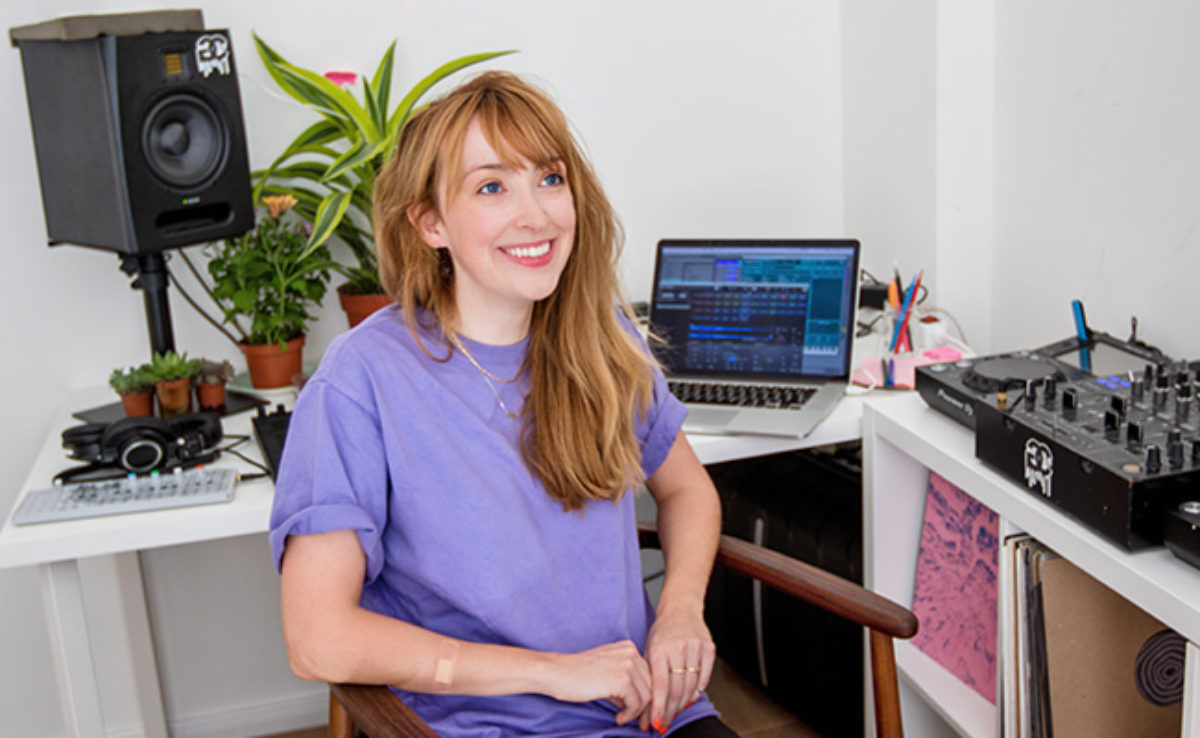
What Native Instruments products are you using when producing?
I have a lot of Native Instruments plug-ins that I really like, they’re so vast. I use a lot of samples so I dip in and out of BATTERY often. I have a load of the KOMPLETE plug-ins, but BATTERY is probably the one I use most. The variety of sounds in BATTERY is definitely something I incorporate; I work with it all the time.
I use BATTERY mostly for percussive elements of tracks. Drum sounds, or other percussive elements just for a bit of variety. I find it has really good quality samples. I’ve also used ABSYNTH for different sound design projects in the past.
When you’re making music, what’s your workflow like? How do you go about making a track?
It changes. I don’t have a set formula that I stick to; I tend to use a lot of samples like I was saying. Sometimes it can be a sample that I found that I’m excited about, thinking how I’m going to incorporate it and I don’t know what any of the other elements of the track are yet. Other times, I could be thinking of a rhythmic pattern that I want to use and start with that instead. My workflow changes; I haven’t found one set thing that works for me yet. When I am stuck in a rut, I do tend to go back to sampling.
Where do you find your samples?
Everywhere! Nothing is sacred; I think you should sample everything. Even if it’s something low quality that you found on YouTube, if you chop it up properly you can make something out of it. Or you can use sample packs, field recordings…”anything goes” is my attitude to sampling.
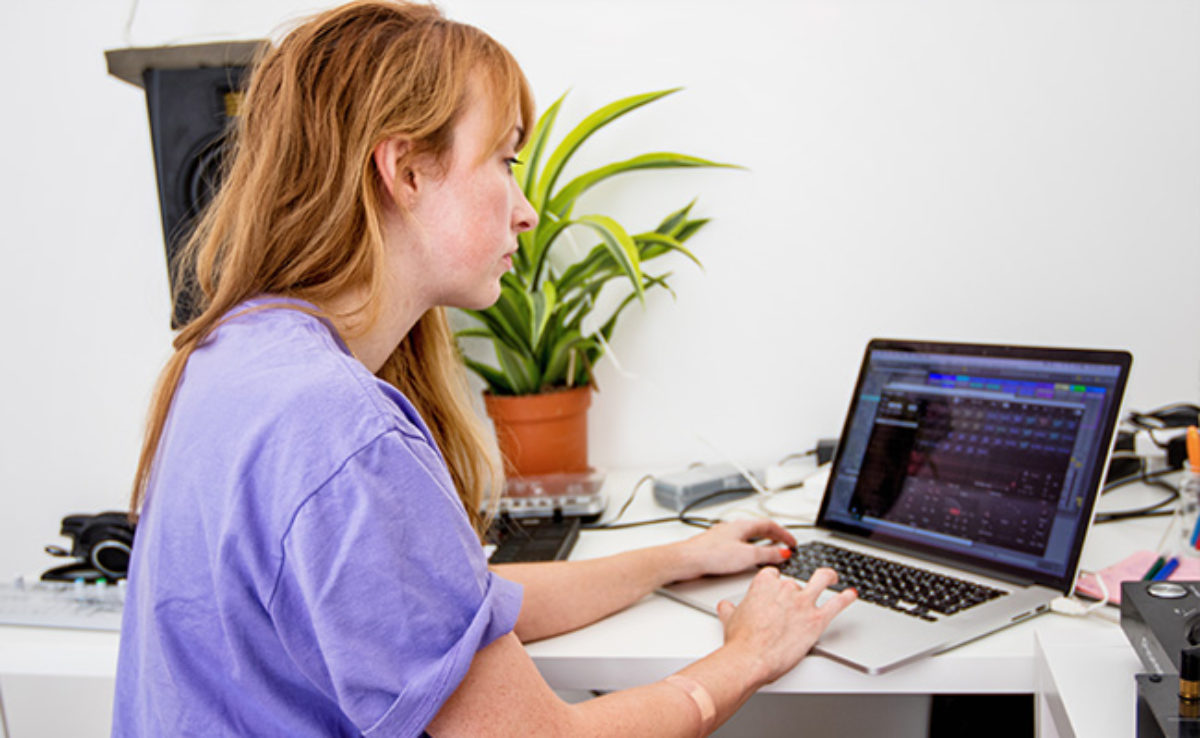
So do you sample something, and then process it? Or do you sometimes leave a sample as it is?
The majority of the time I’d say the sample is unrecognisable from where it started off. I’ll use several tiny pieces of the same sound, and process them heavily and manipulate them until they’re something completely different. I find that fun, because you get so far away from where you started. It gives you this new platform and this new sound. Sample anything, but make it your own.
Was that how you put together your 2016 ‘Romance’ EP for Art For Blind?
Yeah, it was very sample heavy. Everything but the drums were samples ripped from one place or another. A lot of them were from different types of music, or different genres of music that I chopped up.
Do the samples you find come from listening to different types of music?
Yeah, at the time when I did ‘Romance’ I was on a golden era of Bollywood tip. I’d watch the movies with subtitles and the music was amazing and inspiring. A lot of the tracks for ‘Romance’ came from me playing live, they had started as improvisations. I was recording the improvisations, and editing them and rearranging them. Those tracks were honed over time; none of them were churned out quickly.
You run Gash Collective. How did that come about and how has it grown since it started?
It came about for a variety of reasons. I was inspired by female:pressure, and how it was connecting women all over the world working in different art disciplines. It’s like a massive mailing list, and it’s everything from people asking questions about things in a safe space to promoting their music. I thought it was really cool and really inspiring. I was thinking to myself that it would be nice to have something like that in Ireland, in an Irish context. The people in Ireland who make music are dispersed. A lot of people might live in Dublin, but there’s also people making amazing music in the south, in the west and in the north. It was to connect all these different voices somehow, and link people. I know there are a lot of other collectives out there, but they all seem to be centred in one city. Gash Collective isn’t like that; it’s making connections between different people so everyone can exchange their ideas.
Gash Collective was started on International Women’s Day, 2016. I’d been thinking about it for a while and my friends encouraged me, and International Women’s Day came around and I thought that was a good springboard to launch it. I put together a rough and ready website, put it out and posted on social media. It went from there, and fortunately I got a really good response from the media in Ireland and people working in the arts. Everyone was encouraging and enthusiastic about it, and it’s grown slowly and naturally over the last two years.
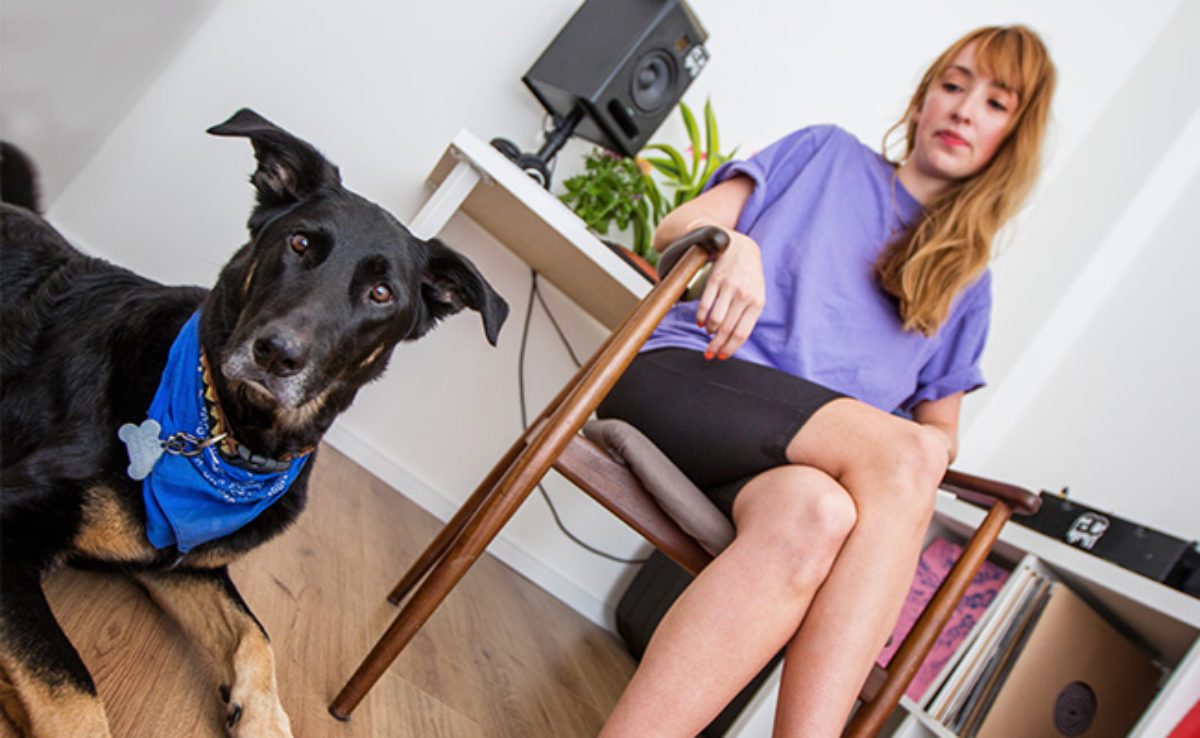
As part of Gash Collective, you offer free DJ workshops. Could you expand more on this and tell us a bit about what else you do?
We do a lot of things! We do DJ workshops, production workshops, parties, gigs and radio. We’re in lots of different areas. The DJ workshops and production workshops were something that we were adamant about doing from the start. We wanted to make them free and accessible, because so much of the equipment is expensive. People are afraid to touch it in case it breaks. We wanted to open that up to everyone. We’ve done loads of free DJ workshops and production workshops over the last two years, all across Ireland with all walks of life. The people who’ve come through the workshops have kept practicing and now they’re starting to do their own thing. They’re getting back to us with their mixes, so it’s been cool to see how people have stuck with it and been inspired to keep creating music.
For the DJ workshops, do you show people how to use TRAKTOR in them?
Yeah, with Gash Collective we collaborate with other collectives and we were doing a workshop recently. It was myself and another girl. She was using CDJs and I was teaching someone on TRAKTOR. This was so everyone that came could try both. TRAKTOR is something we all encourage because CDJs are expensive. There’s not a good entry-level case for using CDJs, or decks. Whereas with TRAKTOR, most people have a laptop. It gives you such a good foundation for DJing, as it’s so accessible. So yeah, TRAKTOR is something we incorporate and encourage people to get started on. You can start DJing in your bedroom immediately, getting a feel for mixing. It is great that way. You can figure out if it’s for you, and if you want to stick to it and then you can always invest in more kit down the line.
What we’ve seen with the workshops is that people are afraid to touch decks and CDJs because they think they’re going to break something, they’re almost like this alien thing. Most people feel familiarity with using their laptop already, so then to use a program like TRAKTOR – it’s not a million miles away. It’s a soft introduction to DJing – it’s easier.
photos: Yvonne Hartmann








